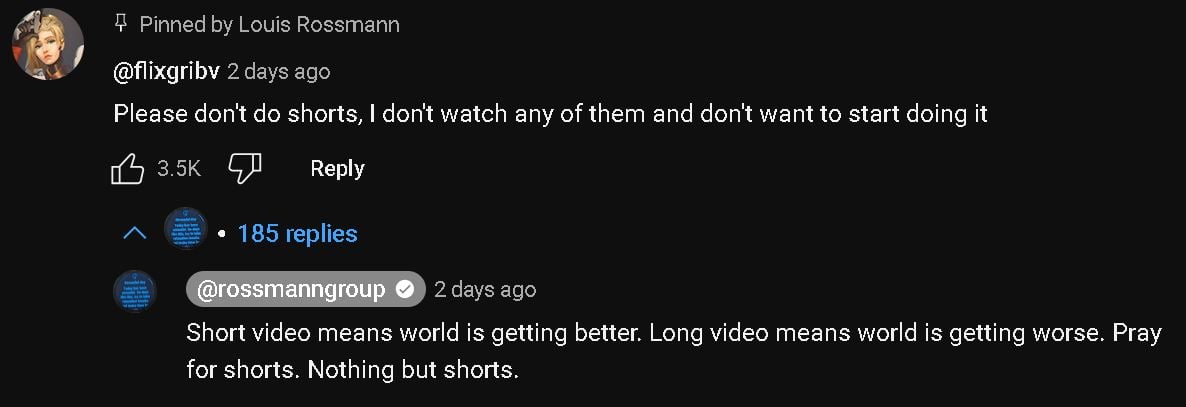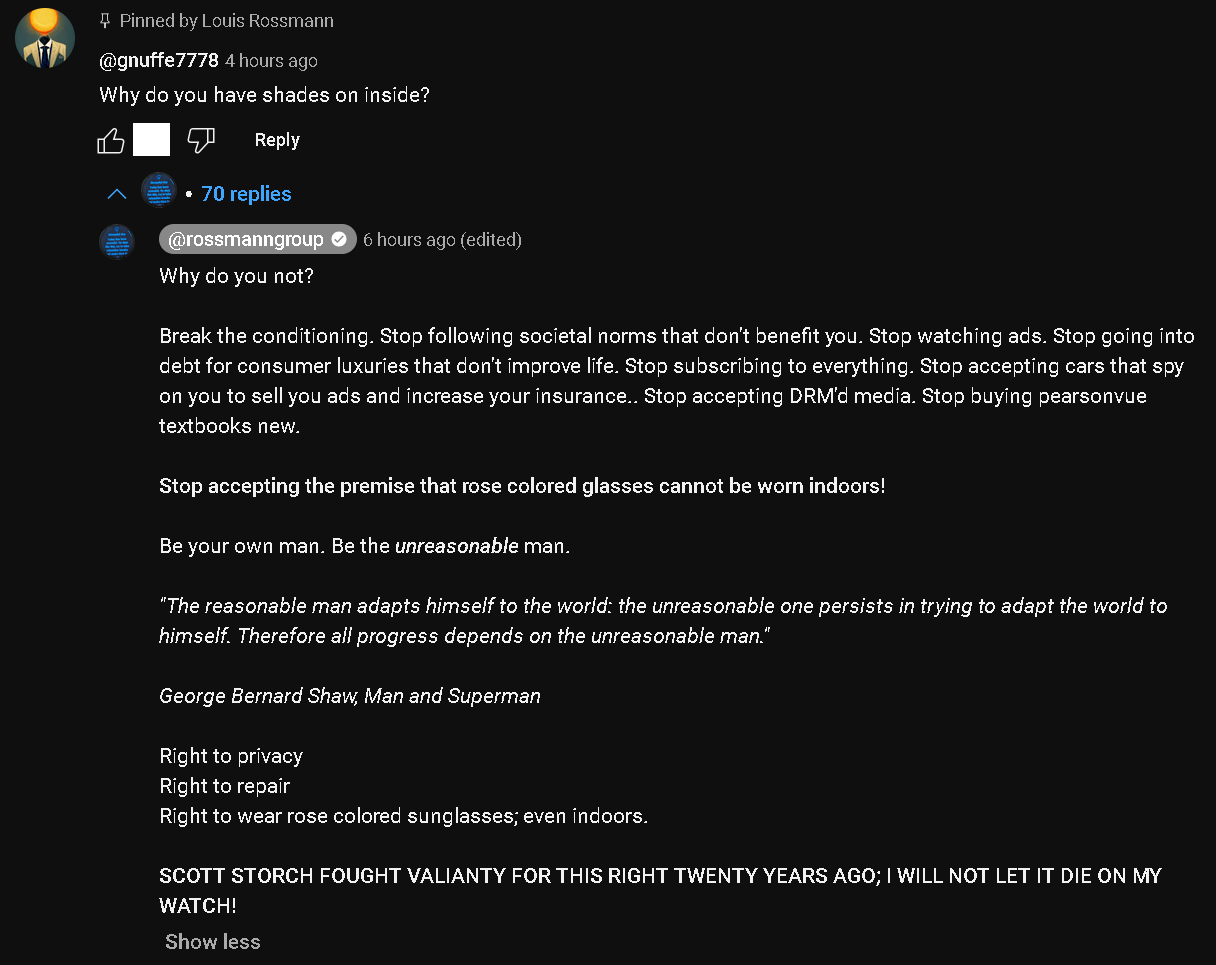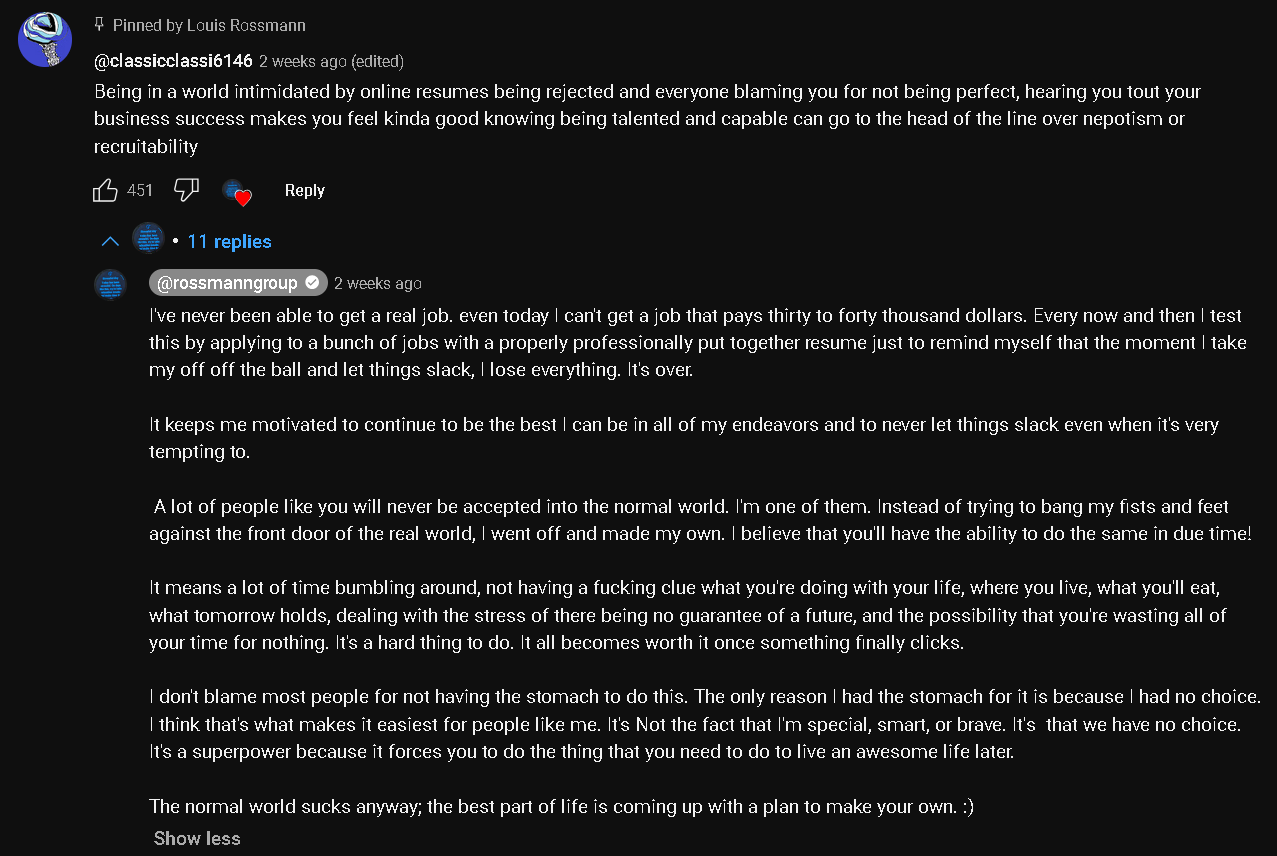1
3
Highlight - 9:40.825
Sources from video description:
- https://web.archive.org/web/20240000000000*/https://www.nytimes.com/2024/10/31/nyregion/peanut-squirrel-pet-seized.html
- https://extapps.dec.ny.gov/docs/wildlife_pdf/1801animaldangerhealthwelfare.pdf
- https://govt.westlaw.com/nycrr/Document/I3783ab1bc22411dd80c2c6f42ff0193c?viewType=FullText&originationContext=documenttoc&transitionType=CategoryPageItem&contextData=(sc.Default)&bhcp=1
- https://www.today.com/news/peanut-the-squirrel-controversy-explained-rcna178506
Key Points:
- Urban Living Realities: Life in NYC can be challenging, with high rent and security concerns, but it also fosters resilience and community.
- Crime Perception vs. Reality: While crime is prevalent, the experiences shared reveal a nuanced understanding of urban life beyond headlines.
- Cameras vs. Community: Surveillance may not solve problems; true community safety comes from relationships and understanding.
- Connection Over Class: The narrator feels closer to those from lower socioeconomic backgrounds than to affluent peers, emphasizing shared struggles and experiences.
- Humor in Hardship: Using humor to discuss difficult experiences helps cope with challenges, making the narrative relatable.
- Identity Formation: Personal growth and identity are deeply intertwined with the environment, as seen in the narrator’s journey from a broke teenager to a successful entrepreneur.
- Justice and Enforcement: The disparity in how laws are enforced highlights societal priorities and critiques the system’s focus on minor offenses over significant issues.
Short Summary
- The speaker humorously reflects on living in a $2,200 studio apartment in New York City, sharing exchanges with their landlord and neighbor about package thefts and challenges in a high-crime area.
- The landlord expresses concern over stolen packages and [Louis] suggests installing security cameras, while the neighbor struggles with spelling the speaker's name and mentions missing packages.
- The speaker highlights the irony of thieves targeting boxes containing generic cat litter, emphasizing the absurdity of the situation.
- They reminisce about their 14 years in the neighborhood, noting that despite challenges, living in NYC provided invaluable experiences and opportunities.
- The speaker reflects on their journey from a $400 apartment to their current rent, appreciating the vibrant community and unique lifestyle.
- They discuss feeling a mutual understanding with noisy neighbors, contrasting it with the exclusion felt in more affluent areas.
- The speaker recounts their teenage years of limited resources and working stealthily in a park to build a business, achieving success with a store and a million YouTube subscribers.
- Despite their accomplishments, they chose to remain in their original neighborhood, valuing community over the allure of a more upscale lifestyle.
- They express frustration with the local authorities' focus on seizing pets while ignoring more pressing issues like flood mitigation.
- The speaker shares personal anecdotes about theft, including having cat litter stolen, and critiques state regulations regarding animal control, emphasizing that squirrels are not dangerous animals.



